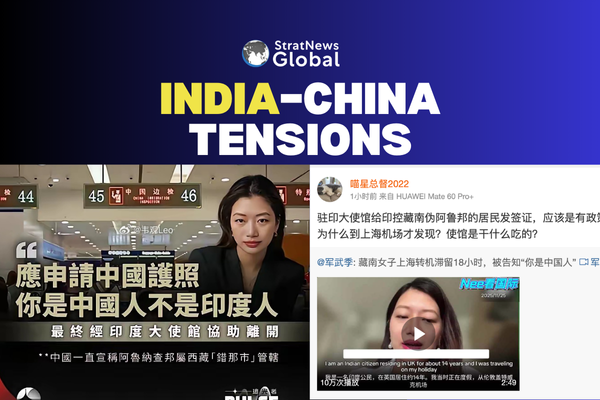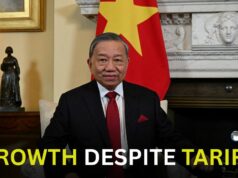The detention of a UK-based Indian woman from Arunachal Pradesh for nearly 18 hours at Shanghai Pudong Airport this week triggered a surge in nationalist Chinese social-media commentary under the hashtag #Zangnan (Southern Tibet) Beijing’s term for the Indian state, amplifying concerns over China’s increasingly aggressive public messaging on the disputed region.
Pema Wangjom Thongdok, who was travelling from London to Japan via Shanghai, said airport authorities stopped her after noticing that her Indian passport listed “Arunachal Pradesh” as her birthplace. Officials insisted her passport was “invalid”, mocked her nationality, and repeatedly told her she needed a Chinese passport to travel, according to her account. They blocked her onward journey until she purchased a fresh ticket. The Indian Consulate later intervened to secure her release.
‘Zangnan’ Trends on Chinese Social Media
As details of her detention circulated, Chinese social media erupted. “Zangnan (Southern Tibet)” shot to the top of Weibo trends, drawing thousands of posts endorsing the harassment and echoing Beijing’s territorial assertions. One user wrote: “I hope to see the People’s Liberation Army reclaim the territory of South Tibet occupied by India in my lifetime!” Another declared: “She belongs from illegal India-occupied Arunachal Pradesh Zangnan.”
Some even proposed a “Zangnan (Southern Tibet) Compatriot Card” a symbolic identity document for residents of Arunachal Pradesh aimed at demonstrating “kinship” while reinforcing China’s claims. One post argued: “This would show who the real compatriots are.” Others attacked Indians directly, writing: “Using Zangnan again as a tool to stir up trouble this group of Indians is truly disgusting.”
Even Chinese diplomats drew fire. A widely shared comment criticised the Chinese Embassy in New Delhi for granting a visa to an Arunachal resident at all:
“The Chinese Embassy must have rules for people from the so-called Arunachal Pradesh, right? Why was this only discovered at Shanghai Airport? What is the embassy even doing?”
The intensity of the online nationalism has raised concerns among observers, who note that China’s social-media space is tightly controlled and often reflects the political mood in Beijing. Analysts say such digital surges regularly accompany periods of heightened assertiveness on foreign-policy issues, particularly along contested borders.
In India, the response was immediate. The Ministry of External Affairs reiterated that Arunachal Pradesh is an “integral and inalienable” part of India. The state’s Chief Minister, Pema Khandu, condemned the “humiliation and racial mockery” inflicted on Thongdok. Many in India view the viral “Zangnan” narrative as part of China’s broader campaign to normalise its territorial claims through public discourse and administrative pressure.
For travellers like Thongdok, the dispute is no longer distant it has immediate, personal consequences.
Research Associate at StratNewsGlobal, A keen observer of #China and Foreign Affairs. Writer, Weibo Trends, Analyst.
Twitter: @resham_sng





